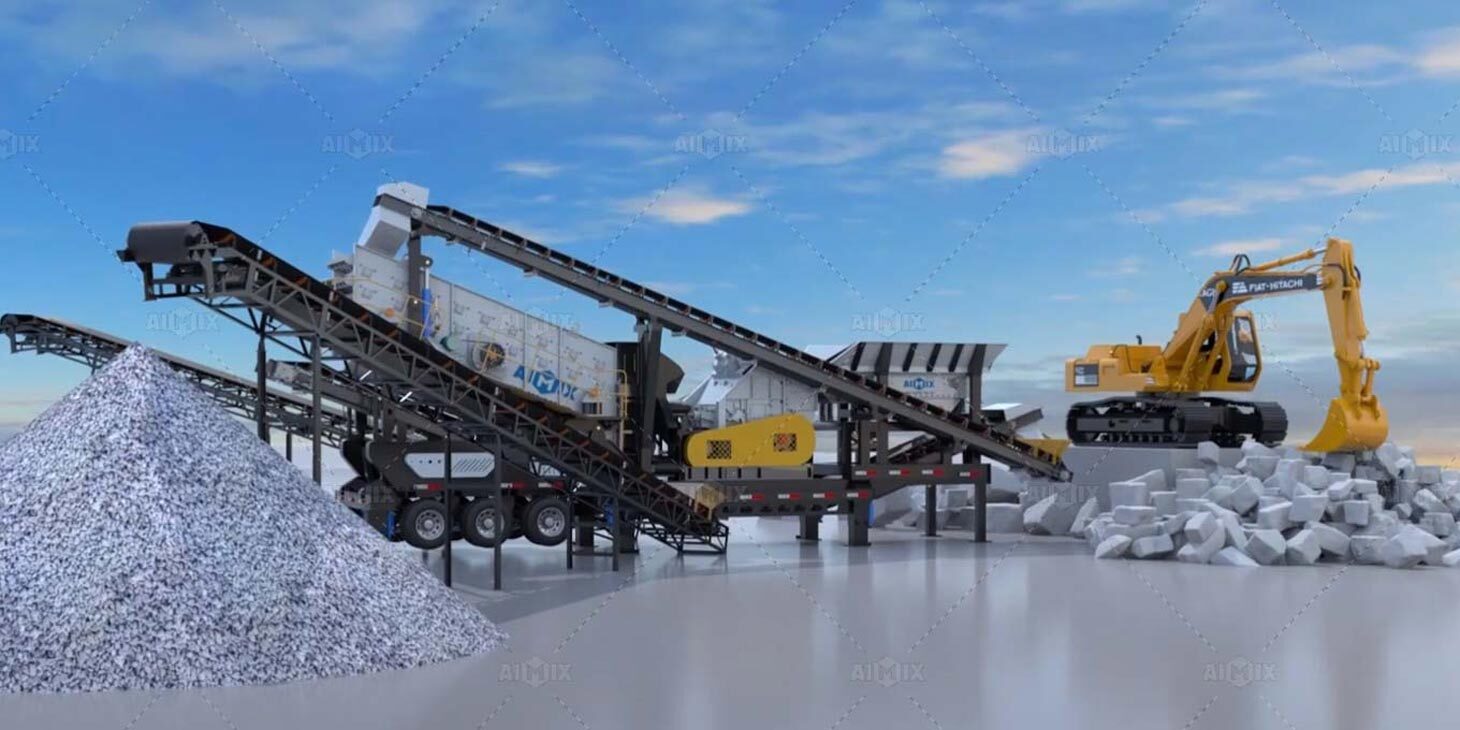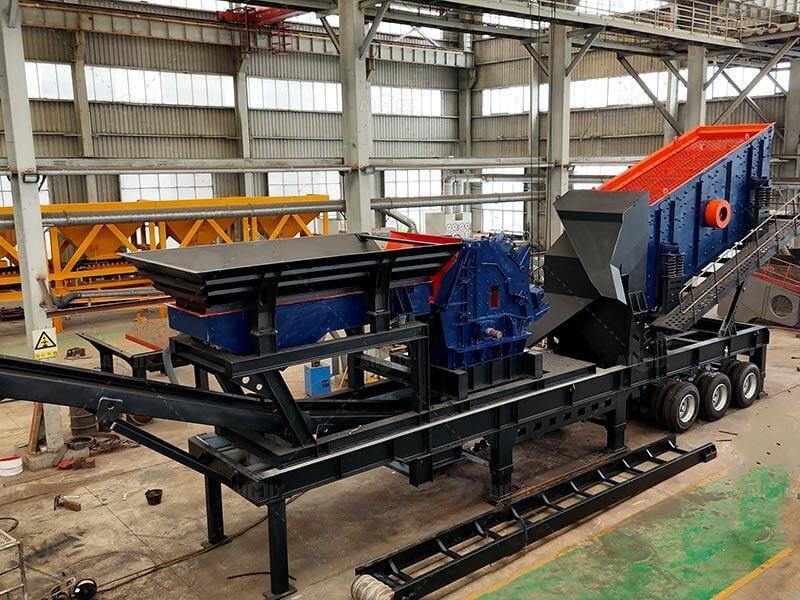The increasing demand for sustainable construction practices has driven the rapid adoption of mobile crusher plants in construction waste recycling. As urbanization accelerates, demolition and renovation projects generate vast amounts of debris, which, if not properly managed, contribute to environmental degradation. Traditional disposal methods, such as landfilling and uncontrolled dumping, are no longer viable due to stringent regulations and space limitations. Mobile crusher plant offers a practical solution by transforming waste materials into reusable aggregates, reducing both costs and ecological impact. Their ability to operate directly on-site eliminates transportation challenges, making them an indispensable tool for modern construction projects.
The Advantages of Mobile Crusher Plants in Waste Management
On-Site Processing for Greater Efficiency
One of the most compelling benefits of mobile crusher plants is their ability to process materials directly at demolition sites. Conventional waste disposal requires hauling debris to processing facilities, increasing fuel consumption, labor costs, and project timelines. Mobile crushers eliminate these inefficiencies by crushing materials at the source, ensuring that aggregates are readily available for reuse in road construction, concrete production, and land rehabilitation.
By minimizing logistical complexities, these plants streamline operations while reducing the carbon footprint of waste management. Additionally, modern mobile crushers come equipped with automated systems, improving precision in sorting and sizing materials to meet diverse construction requirements.

Cost Reduction Through Material Reuse
Construction companies continuously seek ways to cut costs without compromising quality. Mobile crusher plants facilitate significant cost savings by converting waste into valuable resources. Instead of purchasing new aggregates, project managers can repurpose crushed concrete, bricks, and asphalt, lowering expenses on raw materials.
Furthermore, the reduced need for landfill disposal translates to lower tipping fees and compliance costs associated with waste regulations. The financial benefits of using crawler crushers extend beyond a single project, making them an economically sustainable investment for construction firms and recycling enterprises.
Environmental and Regulatory Compliance
Reducing Landfill Dependency
Urban expansion has led to increased restrictions on landfill use, forcing construction firms to seek alternative waste disposal methods. Mobile crusher plants align with these evolving regulations by minimizing landfill contributions, ensuring that materials are recycled instead of discarded.
Many regions have adopted stringent waste management policies, incentivizing businesses to implement closed-loop recycling systems. By integrating mobile crushing technology, companies not only comply with these regulations but also position themselves as leaders in sustainable construction.
Lowering Carbon Emissions and Pollution
Beyond landfill reduction, mobile crusher plants contribute to a cleaner construction process by significantly decreasing dust, noise, and emissions. The transportation of debris to distant processing sites generates substantial vehicle emissions, worsening urban pollution levels. Mobile crushers mitigate this issue by keeping operations contained within project sites, reducing unnecessary vehicular movement.
Additionally, modern crushers incorporate dust suppression mechanisms and noise reduction features, ensuring a safer and more environmentally friendly work environment. These advancements make mobile crusher plants a practical choice for projects in densely populated areas where environmental concerns are a priority.

The Future of Mobile Crusher Plants in Construction Waste Recycling
The global shift towards sustainable construction will further elevate the demand for mobile crusher plants in waste recycling. As technology advances, next-generation crushers will likely feature greater automation, enhanced energy efficiency, and improved material recovery rates. Governments and industry leaders will continue to push for sustainable waste management strategies, making mobile crushing solutions a cornerstone of modern construction practices.
The integration of artificial intelligence and real-time monitoring in mobile crushers will optimize performance, ensuring that materials are processed with minimal waste. These developments will reinforce their role in creating a circular economy within the construction sector, where waste materials are continuously repurposed rather than discarded.
Conclusion
Mobile crusher plants have revolutionized construction waste recycling, providing a cost-effective, environmentally responsible, and efficient solution for managing demolition debris. Their ability to process materials on-site, reduce landfill dependency, and comply with environmental regulations makes them a vital asset for modern construction projects. As the industry moves toward greater sustainability, the prominence of mobile crushers will only increase, ensuring that waste materials are no longer seen as liabilities but as valuable resources for future development.

